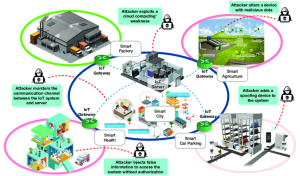Web-based telephone management is known as Voice over Internet Protocol (VoIP). The conversations are digitized and directed through web lines rather than sending voice conversations via traditional phone lines.
VoIP innovation has improved dramatically since its introduction in the 1990s, and its popularity has risen. Clients used to complain that the sound quality over VoIP wasn’t as excellent as it was on a landline, but such difficulties no longer exist.

Which is better! The landline or VOIP?
- Choosing between a landline and a voice over ip phone systems for business isn’t as simple as it may appear. Because each offers distinct benefits, the best option depends on your company’s requirements.
- Cost, web association, and dependability are critical factors to consider when making your decision.
- While VoIP offers greater adaptability, landlines are known for their dependability and consistent quality.
- The telephone framework you select can be a pivotal decision for your organization. When deciding between a landline and a VoIP system, several factors are to consider, including cost, dependability, and utility. While you may be tempted to dismiss a landline as an antiquated system compared to modern VoIP systems, there are numerous advantages to a traditional system that may be preferable for your needs.
How does a VoIP work?
- A phone with a VoIP connection. With a connection, you can use a regular landline phone to make decisions over the internet. The connectors can be plugged into a phone power source in the divider or directly into your switch.
- A computer (i.e., a “softphone”). Many projects or programs, such as Skype, Google Voice, and FaceTime, are available that allow you to make voice decisions over the internet.
- A mobile phone. You can download software for your phones, such as Google Voice or Skype, to make web decisions.
- A dedicated VoIP phone. These appear to be standard basic telephones, but they connect directly to a PC network rather than a phone line.
Advantages of a VoIP
- Cost: As previously stated, long-distance calls and worldwide interchanges have reduced expenses.
- Integrity: VoIP functionality may be embedded into mobile apps, backend programming, existing stages – any use case you can think of.
- Adaptability: Because VoIP administrations are cloud-based, they can be scaled up and down with the click of a mouse.
Conclusion
According to Chris Sherwood, an Oregon-based telephone framework expert, determining whether a Voice over IP phone system for business appears legitimate for a private endeavor entirely depends and varies from firm to firm.
You must ensure that they have enough transfer transmission capacity for the number of calls they expect to be running simultaneously.






More Stories
Cost efficient security approaches maximizing coverage while minimizing ongoing monitoring expenses
Personalized Care Solutions Powered By Adaptive Software Patient Centered Analytics
Step-by-Step Process of Working with a Backlink Provider